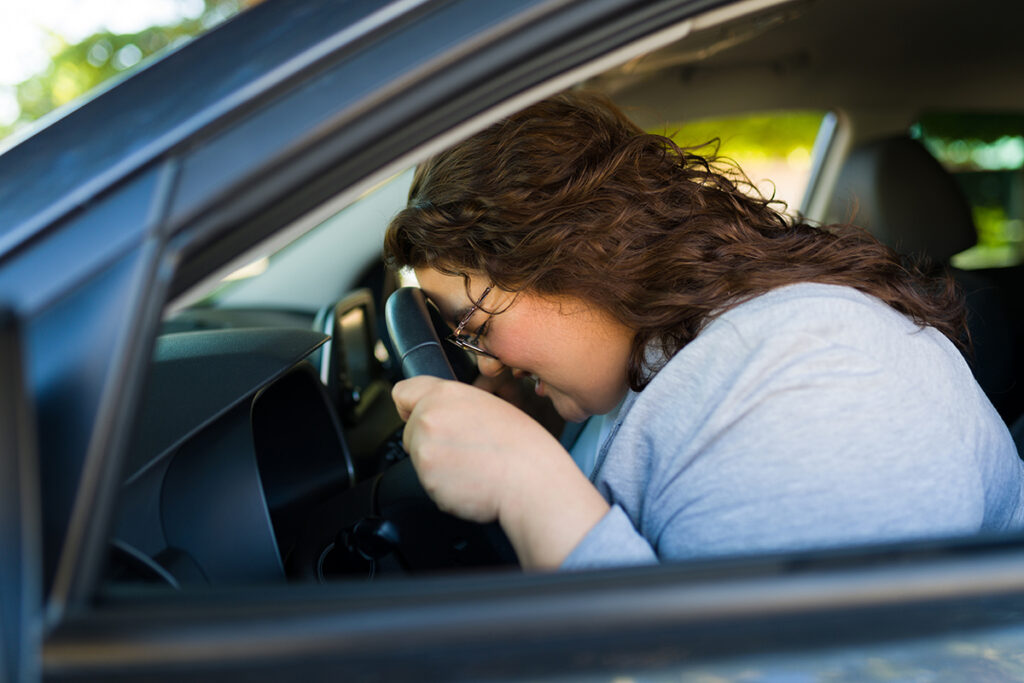Every year, millions of people are involved in car accidents. Thanks to safety features like seatbelts, airbags and automatic emergency braking, many drivers and passengers walk away without serious physical injuries. Still, nothing can shield you from the potential mental and emotional consequences. According to the American Psychological Association, motor vehicle accidents are the most common cause of post-traumatic stress disorder in the civilian population.
June is PTSD Awareness Month and National Safety Month. If you have experienced a collision, you must know how to recognize the signs of trauma after a car accident and how to improve your well-being.
Trauma After a Car Accident
PTSD is a mental health condition caused by experiencing or witnessing a traumatic event. It can last for years, making you feel unsafe and interfering with your daily routine. You may meet the DSM-5-TR criteria for trauma after a car accident if you experience issues like these.
- Heightened emotions like anger, shame, guilt and fear
- Feeling numb or detached
- Isolating from friends and family
- Losing interest in hobbies and activities
- Problems with memory, concentration, problem-solving and planning
- Nightmares, flashbacks and intrusive thoughts
- Physical symptoms like fatigue, insomnia, headaches, stomachaches and muscle tension
- Hyperarousal, or an inability to relax
- Avoiding anything that might remind you of your traumatic experience
- Self-destructive behavior such as substance abuse
The Health Effects of Trauma
With PTSD, it can be challenging to manage intense emotions and deal with the distressing aspects of your experience. The unpredictable triggers can be hard to avoid. After a car accident, thinking about being a driver or passenger might cause your heart to race and your palms to sweat. Vivid nightmares or overnight panic attacks could make it hard for you to get a restful night’s sleep.
When your mind and body are always on high alert, the resulting stress can make you tense, irritable and sick. You may lash out at people around you because you are so anxious and high-strung. A desire to escape your emotions can also lead you to engage in high-risk behavior like binge eating or substance abuse. These maladaptive coping mechanisms can worsen your physical and mental health.
Drinking and drug use can be especially dangerous behavioral consequences of trauma after a car accident, especially for women. Studies show women progress more quickly into addiction than men and can also begin noticing signs of severe health problems sooner. They are more at risk of developing potentially fatal organ and tissue damage and specific forms of cancer. For these reasons, it’s essential to seek help if you feel lost or out of control.
Women’s-Only Dual-Diagnosis Treatment
Unaddressed trauma stays in the brain and body, possibly leaving you helpless, alone and perpetually afraid. If you become addicted to alcohol or drugs when using substances to manage trauma after a car accident, the difficulties surrounding a dual diagnosis will eventually make your life significantly more challenging and less fulfilling.
As a women’s-only treatment center, Canyon Crossing Recovery understands the importance of creating a gender-specific, safe space to heal. We offer holistic wellness programming that blends evidence-based therapy with outdoor adventure, nutrition, exercise and other amenities. To ask for help with your dual diagnosis, contact us today.



